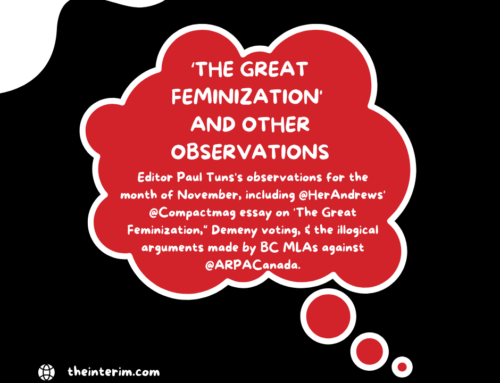 Our story starts in Paradise. The very word, “Eden,” cannot fail to conjure images of perfection, of a natural world which offers bliss without brambles, a habitat in which the Almighty Himself walked with us in the cool of the evening (Gen 3:8). Indeed, Adam, Eve, and God made a kind of “trinity,” a harmonious community of humanity and divinity, a perfect peace reflected in the image of world-as-garden.
Our story starts in Paradise. The very word, “Eden,” cannot fail to conjure images of perfection, of a natural world which offers bliss without brambles, a habitat in which the Almighty Himself walked with us in the cool of the evening (Gen 3:8). Indeed, Adam, Eve, and God made a kind of “trinity,” a harmonious community of humanity and divinity, a perfect peace reflected in the image of world-as-garden.
At some point, as we know, the story takes a tragic turn. It begins with a seductive suggestion which was not easily and immediately dismissed: from that was born the spiritual hunger after what Milton called “that Forbidden Tree” from whence came “all our woe.” The allegory of this fatal fruit brings with it the notion of fruition and fructification, concepts that fuse the natural processes of generation with the unnatural and disastrous consequences of “Man’s First Disobedience.” The world, thereafter, is not a garden only, and the first paradisiacal dwelling place of peace with man and God was lost.
But the story does not end here. Although humanity had, freely and willfully, severed the vital link with its Creator, God would willingly become man’s Re-creator, establishing again the harmony of the garden within the desert of man’s own making. Nature had become as cold as the human heart—but it was into this winter world that the Word wished to descend.
Bethlehem, then, is the image of an Eden reconstituted. The natural harmonies have all been shattered, and the breezes of paradise have given way to blasts of icy air. The once fertile world has become barren, and inhospitality drives a couple into the cold comfort of a cave, the meager accommodations of a manger. And yet, at the very edge of a provincial backwater, in the depth of winter, the first garden flourishes again. Man and woman and God create a new tableau, with the divine no longer coming to man in the cool mists of a temperate clime, but in the flesh.
“Behold, the virgin shall be with child and bear a son, and they shall name him Emmanuel, which means ‘God is with us’” (Mt 1:23). The severed link between the human and the divine could only be reestablished by God, but—and this is the real miracle of Christmas—this reconstitution is accomplished by God in becoming human. By entering into the network of human relations and connection, Christ makes the covenant between heaven and earth irrevocable; by having, in addition to a Heavenly Father, a real mother who shields the newborn Babe from the bite of harsh elements, the entire human tragedy of our fallen condition is incorporated into the rising action of a comedy which is, as Dante attests, divine.
Christmas replaces all of mankind’s most desperate questions—“What shall we do?” “What is the meaning of a life limited by death?” “Where shall wisdom be found?”—with a single one: “Will you accept the invitation?” God has entered the Kingdom of a cradle; will you adore Him there? The Most High convenes a court of animals and angels, simple rustics and oriental kings; will you join their company? God now comes to man at the cost of His own life; will you yield the love that this wild salvific act solicits so obviously and deserves so richly? Having no regal gold, sacerdotal incense, or confirming, preserving myrrh, we can nevertheless give what the God that became a Baby craves above all else: our heartfelt affection. Indeed, in such acts of prayerful adoration, the deserts of our own days become fruitful, and the darkness of our own long, cruel nights can become bright with light.
This year seems to give little cause for celebration. There are wars and rumors of war, and the many looming dangers abroad are eclipsed only by the ever-growing threats to our livelihoods and freedoms at home. Sudden deaths are on the rise as our peace, prosperity, and security all wane; nor do the powers that be have anything resembling good government to offer. While the slaughter of unborn children in America has been curbed by the end of the Roe-era, it continues in Canada unabated. And a horrific epidemic of “medical death” encroaches further into the Canadian medical establishment with each passing day. Ours is, indeed, a cold world.
“Rejoice in the Lord always: and again, I say, Rejoice” (Phil 4:4). Saint Paul’s repeated, emphatic, and admonishing command is, therefore, for us. We must rejoice, because God has come into our cold world; He has entered into the depth of our misery; and He has chosen the human family as His dwelling place forever, bringing to us the greatest of all gifts: Himself. For God has come even into our corner of history. It remains only for us to seek Him, to find Him, and to welcome the one who longs for the shelter of our open arms: Emmanuel, God-with-Us.
We, at The Interim, wish you and your families a Merry Christmas, and a New Year full of hope and joy.




